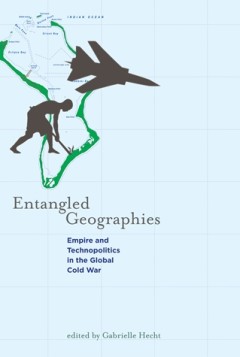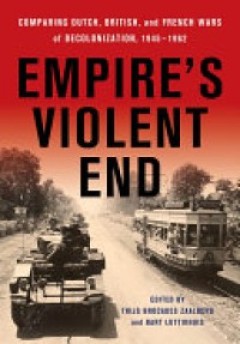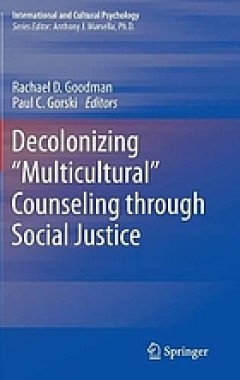Filter by

Beyond Empire and Nation; The Decolonization of African and Asian societies, …
The decolonization of countries in Asia and Africa is one of the momentous events in the twentieth century. But did the shift to independence indeed affect the lives of the people in such a dramatic way as the political events suggest? The authors in this volume look beyond the political interpretations of decolonization and address the issue of social and economic reorientations which were nec…
- Edition
- -
- ISBN/ISSN
- 9789004260443
- Collation
- 291
- Series Title
- -
- Call Number
- -

Entangled geographies: Empire and technopolitics in the global Cold War
The Cold War was not simply a duel of superpowers. It took place not just in Washington and Moscow but also in the social and political arenas of geographically far-flung countries emerging from colonial rule. Moreover, Cold War tensions were manifest not only in global political disputes but also in struggles over technology. Technological systems and expertise offered a powerful way to shape …
- Edition
- -
- ISBN/ISSN
- 9780262295710
- Collation
- 1 online resource (viii, 337 pages) :illustrations, maps.
- Series Title
- -
- Call Number
- -

Fragments of repair
An activist handbook guided by Kader Attia's proposition of decolonial repair with original essays from diverse global contributors. Today's entwined crises, from ecological catastrophe to the COVID-19 pandemic to wars in Ukraine and across the world, reveal deep-seated wounds that issue from historical colonialisms and present-day authoritarianisms, economic disparity and growing racial violen…
- Edition
- -
- ISBN/ISSN
- 9780262373944
- Collation
- 1 online resource (192 pages).
- Series Title
- -
- Call Number
- -

Decolonizing design :a cultural justice guidebook
"Responds to the urgent call to decolonize design through powerful, incisive guidelines drawn from 15 years of lived experience. A transformative blueprint for repairing the harm caused by structural inequity through decolonizing not only our institutions, but also our thinking, and how to begin today"--OCLC-licensed vendor bibliographic record.
- Edition
- -
- ISBN/ISSN
- 9780262373142
- Collation
- 1 online resource
- Series Title
- -
- Call Number
- -

Empire’s violent end : comparing Dutch, British, and French wars of decolon…
In Empire's Violent End, Thijs Brocades Zaalberg and Bart Luttikhuis, along with expert contributors, present comparative research focused specifically on excessive violence in Indonesia, Algeria, Vietnam, Malaysia, Kenya, and other areas during the wars of decolonization. In the last two decades, there have been heated public and scholarly debates in France, the United Kingdom, and the Netherl…
- Edition
- -
- ISBN/ISSN
- Bart Luttikhuis
- Collation
- 246p
- Series Title
- -
- Call Number
- 325.309405

Decolonizing “Multicultural” Counseling through Social Justice
Multicultural counseling and psychology evolved as a response to the Eurocentrism prevalent in the Western healing professions and has been used to challenge the Eurocentric, patriarchal, and heteronormative constructs commonly embedded in counseling and psychology. Ironically, some of the practices and paradigms commonly associated with "multiculturalism" reinforce the very hegemonic practices…
- Edition
- -
- ISBN/ISSN
- 9781493912834
- Collation
- -
- Series Title
- -
- Call Number
- 325.3
 Computer Science, Information & General Works
Computer Science, Information & General Works  Philosophy & Psychology
Philosophy & Psychology  Religion
Religion  Social Sciences
Social Sciences  Language
Language  Pure Science
Pure Science  Applied Sciences
Applied Sciences  Art & Recreation
Art & Recreation  Literature
Literature  History & Geography
History & Geography